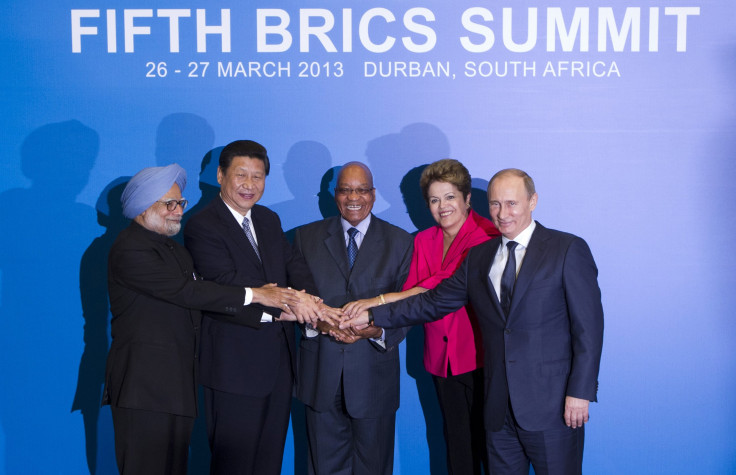BRICS Are Making Their Own Development Bank, But It's Not Going To Be Simple

At the latest gathering of the G20, a group of 19 major economies plus the European Union, leaders of the BRICS nations (Brazil, Russia, India, China and South Africa) had more to discuss than usual.
It’s been a hard couple of months for emerging markets, but they’re turning to each other for assistance, instead of their developed country counterparts.
After the U.S. Federal Reserve announced plans to reduce its $85 billion monthly stimulus policy that had been sending cash towards emerging markets, the BRICS and others experienced massive currency drops and capital outflows.
Last March, the group announced plans for a BRICS Development Bank, an institution aimed at “mobilizing resources for infrastructure and sustainable development projects in BRICS and other emerging economies and developing economies.”
Essentially, it will be a source of funds similar to the International Monetary Fund or the World Bank, but on a smaller scale. Members will use the money for approved projects and help cushion themselves from volatile global markets.
The idea is simple enough to understand, but complicated to enact.
“We must assume that the bank will not start functioning as fast as one could imagine,” Russian Deputy Finance Minister Sergei Storchak told reporters after a September G20 meeting in St. Petersburg, adding that it could take up to a year to get organized.
The leaders used the opportunity to "criticize the 'negative spillovers' of U.S. and European monetary policy for emerging markets," said Joel Whitaker, global head of research at Frontier Strategy Group, a services and advisory firm that partners with senior executives from large multinationals operating in emerging markets.
He said they'll likely recapitulate this theme in Sydney.
"They will doubtless position the BRICS Bank as a steadier source of financing than the 'hot money' portfolio finance flows that lack deep commitment to developing economies," he added.
At the same meeting, the members did manage to agree on exactly how much money would be involved, $100 billion in total. The fund will be made up of $18 billion each from Russia, Brazil and India. South Africa will provide $5 billion and a whopping $41 billion will come from China.
It seems like a lot of money, but it's still relatively small considering the size of each economy, and the rising volatility from developed-market monetary policy.
In theory, one of the benefits of the new association will be greater clout in a changing global economy run by institutions such as the World Bank and IMF that, some argue, disproportionately serve the economically developed nations that created them.
“The world today is markedly different from the world at the time of the founding of the World Bank and many of the regional development banks,” reads an editorial on Project Syndicate authored by Nicholas Stern, Amar Bhattacharya, Mattia Romai and Joseph Stiglitz.
It will also mean a lot for development projects in some of the world’s poorest countries. The authors argue that the private sector is unable to meet the more than $800 billion required to improve conditions for the billions without access to electricity, clean water and other necessities.
“A development bank anchored in emerging markets and developing countries can help address this gap and become a powerful catalyst for change, both in the developing world and – through collaboration and example – in existing institutions,” they wrote.
Despite the lofty goals, it still isn’t all worked out. And it’s going to take some time to determine exactly how things will work.
“The vagueness suggests the new bank’s true purpose hasn’t been worked out. For this venture to succeed, the new bank will need a clear rationale,” wrote Jim O’Neil for Bloomberg. O’Neil coined the term “BRIC” in 2001 while working for Goldman Sachs.
In August he wrote that part of the difficulty in the process lies in the various differences between members. Some, like India, Brazil and South Africa, are democratic countries while others are not, for instance. Economically speaking China dwarfs other members, with a bigger economy than all of them put together. Meanwhile, Russia’s per capita income is more than double that of other members.
Despite the complexity, O'Neil wrote that it’s possible for the bank to be a success, and cautions member states to use the connection to improve each other’s governance, education levels and access to modern technology, three necessities for large emerging economies.
© Copyright IBTimes 2024. All rights reserved.












